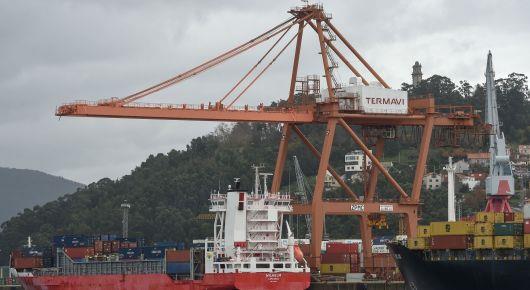FAO-WTO facilitates dialogue on agrifood trade policies to prevent a food crisis

A series of trade measures were adopted in Europe and Central Asia in response to COVID-19, many of which have been short-lived and have been lifted, but others may have longer lasting consequences.
To this end, experts and decision-makers shared their opinions and information on such trade policies at a joint FAO-WTO webinar. The virtual event “Agrifood trade policies in Europe and Central Asia during the COVID-19 pandemic and beyond” also aimed at supporting an international dialogue by taking stock on and analyzing the different trade measures.
Throughout the year, some countries and economic communities in the region opted for domestic trade support measures by providing subsidies and hoarding stocks. The aftermath of the COVID-19 pandemic has also raised questions about the significance of trade vis-à-vis self-sufficiency strategies.
Therefore, the significance of trade in Europe and Central Asia, affected by different types of domestic support measures, was also discussed by the speakers, including Gloria Abraham Peralta, chair of the WTO Agricultural Trade Negotiations; Maximo Torero, FAO chief economist; Alan Matthews, Professor Emeritus of European Agricultural Policy Trinity College Dublin; Tassos Haniotis, Director, European Commission DG for Agriculture and Rural Development, Azamat Askaruly, Vice-Minister of Trade and Integration, Kazakhstan; and Olexandr Zhemoyda, Director of the Ministry of Economy, Trade and Agriculture of Ukraine.
“We are all working hard to avoid a scenario when this human health crisis turns into a food crisis; ensuring a free flow of goods and food supply is a crucial element of this,” said Vladimir Rakhmanin, FAO Assistant Director-General and Regional Representative. “Smallholders – the backbone of rural areas – need access to markets and predictability, and such meetings can contribute to ensuring these.”
FAO has been continuously monitoring the functioning of food supply chains in Europe and Central Asia since April. Despite disruptions of food supply chains, food systems have shown resilience protecting us from a major food crisis. However, this resilience is being stretched to the limit with what has become a protracted crisis, and the rapid deterioration of the financial situation of food supply chain operators.
Clearly, not all governments are willing, able to, or capable of supporting agriculture, and, when measures are adopted, they vary greatly from one country to another. Support therefore also depends on the capacity of governments to transfer resources to agriculture from other sectors of the economy, and on the policy frameworks shaped by bilateral and multilateral commitments, including the WTO.
“Trade should not be a source of the problem, but part of the solution,” Rakhmanin added.
The full webinar, part of a series of regional COVID-19 webinars, is available on YouTube.
21 October 2020, Budapest, Hungary
